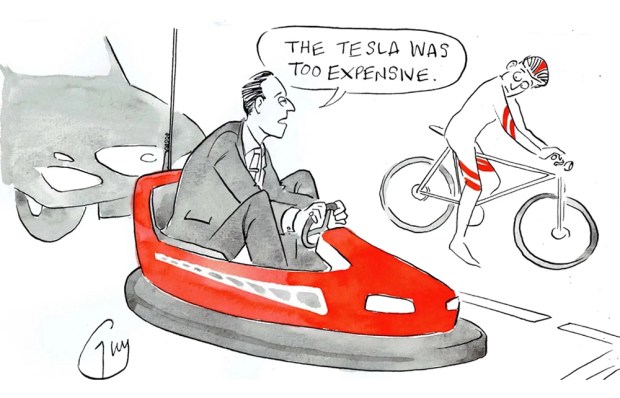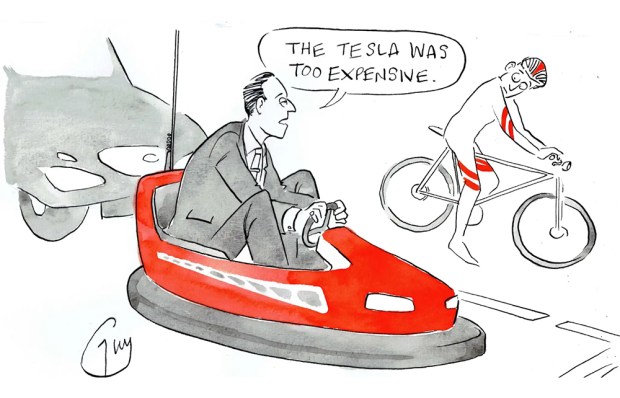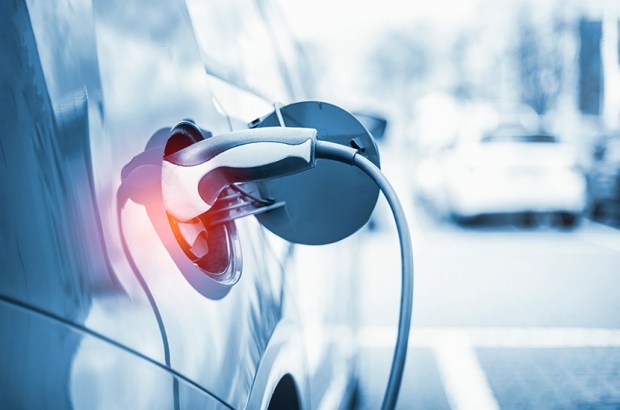The Department for Transport recently ended a £1,500 subsidy towards the price of new, lower-priced electric cars one year earlier than planned. To their credit, there are better ways to promote electric-car use – for instance by encouraging the installation of public charging stations.
As it is, the spread of rapid-charging stations in the UK is bizarrely uneven. Some parts of the country are well served, but there are unexpected black spots. Oddly, trendy places where people talk endlessly about sustainability – such as Oxford, Cambridge and Brighton – are hopeless for rapid charging points, while less fanciful places like Thurrock, Milton Keynes and Newport are awash with them. If you find yourself in Oxford or Cambridge and want to rapid-charge your electric car, you need to head out of town to a Lidl or McDonald’s (Golden Arches 1, Dreaming Spires 0). There is always a whiff of hypocrisy around environmentalism: Brighton, with its Green MP, has one of the worst recycling rates in Britain.
But, returning to the topic of new-car subsidies, it occurs to me that, leaving aside environmental concerns, perhaps all new cars should come with a subsidy or VAT reduction. The same applies to laptops and mobile phones. Let me explain why.
In many ways, buying a brand-new car is a generous deed. Not as generous as giving all the money to charity maybe, but it still counts as a significant act of unintended altruism – an invisible redistribution of wealth. That’s because the car market has some unusual properties.
Most people in Britain never buy a new car in their lives. But those who do disproportionately fund improvements in automotive quality and technology. They enjoy these advantages, along with some added status, for three or four years, and then pass them on to someone else – for less than half the money they paid themselves – without the subsequent buyer paying a penny in VAT. Every time someone with a £60,000 car sells it secondhand for £25,000, they are essentially giving someone poorer than them a cheque for £35,000 in return for a four-year wait. Four years later, that car will cost £8,000.
In 2022, a good ten-year-old car is still a very good car. I recently sold a Jaguar, which I had myself bought secondhand, for £8,000. It was in every respect as good to drive as when the original buyer paid £80,000 for it in 2010. The late Edward de Bono, the originator of lateral thinking, bought secondhand Jaguars throughout his life. His idea was that the people who bought higher-status luxury cars were disproportionately eager to buy them from new, and he could effectively game this to his advantage.
The secondhand market means that almost everyone today can own quite a nice car – the only difference is that rich people get them a few years sooner. Indeed someone with a £2,000 car enjoys 95 per cent of the mobility, comfort and protection from the elements as someone with a £100,000 car. That isn’t true of most goods. You can’t buy a superyacht for £30,000 just because the air conditioning is wonky and the seat fabric is a bit naff.
Imagine how happy we would all be if the housing market were as redistributive as the car market, or the mobile-phone market. ‘I paid £850,000 for this house in 2017, but there’s a new version just out with underfloor heating. Why don’t you take it off my hands for £400k?’
The wider effects – the externalities – of consumption vary enormously. If you replace your kitchen, your old one ends up in landfill. If you replace a car, your old car is effectively a gift to someone poorer than you. Are we right taxing everything the same way? And perhaps the VAT on fast fashion should be 50 per cent?
Got something to add? Join the discussion and comment below.
Get 10 issues for just $10
Subscribe to The Spectator Australia today for the next 10 magazine issues, plus full online access, for just $10.
You might disagree with half of it, but you’ll enjoy reading all of it. Try your first month for free, then just $2 a week for the remainder of your first year.















Comments
Don't miss out
Join the conversation with other Spectator Australia readers. Subscribe to leave a comment.
SUBSCRIBEAlready a subscriber? Log in